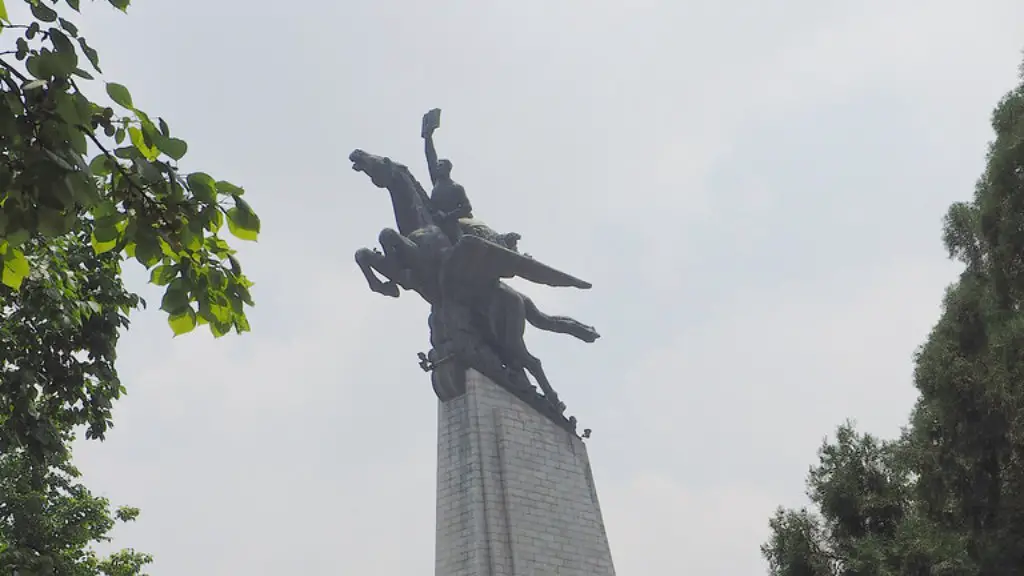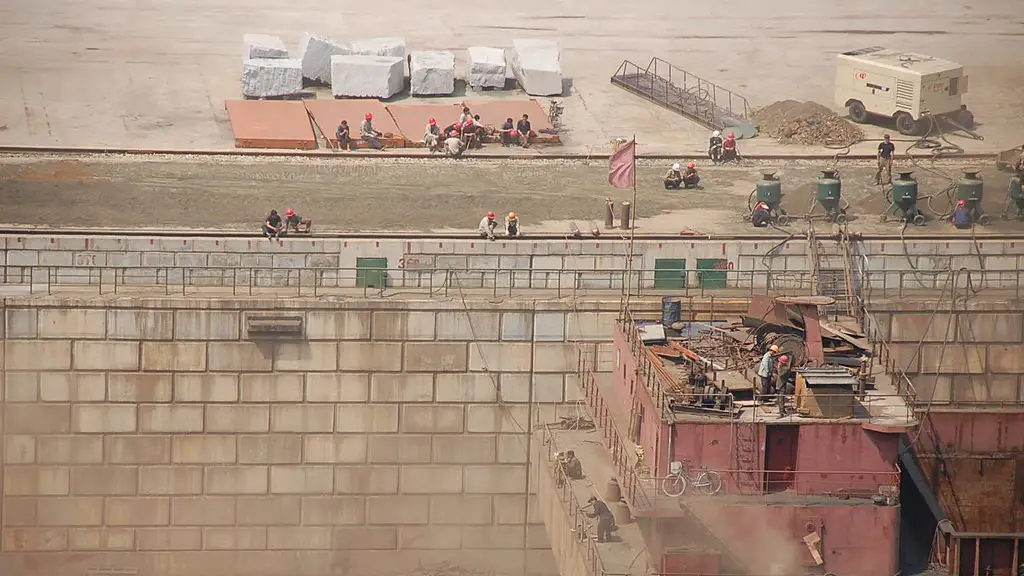North Korea’s Unstable Government
In recent years, North Korea’s government has become increasingly unstable. Not only has the country been cut off from much of the international community, but it has also developed a reputation for issuing frequent diplomatic threats as well as disregarding human rights. With nuclear weapons and aggressive rhetoric, observers fear that North Korea could become a serious threat to global security.
The country is ruled by Kim Jong-un, the grandson of North Korea’s founder, Kim Il-sung. Since taking power, Kim has made several changes to the country’s policies, though access to information inside the country is extremely limited. While North Korea has been able to maintain control over its population, its economy has suffered and international sanctions have only further damaged the system.
As a result of the government’s instability, much of the world is worried about what is happening in North Korea. Questions have been raised as to whether the country is truly determined to become a nuclear power or if it is simply a tool for deflecting attention from its domestic issues.
The Dangers of Nuclear Weapons
At the heart of the debate about North Korea is the country’s quest for nuclear weapons. In the past few years, North Korea has conducted several nuclear tests, sparking fears from the international community. In 2017, the regime launched a series of long-range missiles, increasing global concerns even further.
The dangers of a country possessing nuclear weapons are obvious. Not only could North Korea use its nuclear arsenal to threaten its neighbors, but it could also potentially ignite a military conflict. Additionally, a leak or accident could release large amounts of radioactive material, endangering the people in the region as well as the environment.
The dangers of North Korea’s nuclear ambitions are further exacerbated by its unwillingness to negotiate. In 2018, the country rejected talks with South Korea and the US, making a peaceful solution even more unlikely.
A Growing International Concern
As North Korea continues to show signs of hostility, other nations have grown increasingly concerned. The US and its allies have imposed a series of economic sanctions on North Korea in an attempt to curb its nuclear ambitions.
The UN Security Council has also been involved in the crisis, passing several resolutions condemning North Korea’s actions and urging the country to give up its nuclear weapons. Russia and China, two of North Korea’s closest allies, have also expressed their concern with the regime’s actions.
However, despite these efforts, there have been few tangible signs of progress. North Korea has so far refused to give up its nuclear weapons, raising fears that the country is determined to become a nuclear power.
The Impact of Sanctions
The US and its allies have imposed a series of economic sanctions on North Korea in an attempt to pressure the government into abandoning its nuclear program. These sanctions have had a drastic effect on North Korea’s economy, with inflation rising and many citizens struggling to survive.
The UN estimates that roughly 70% of the population is food insecure and faces the threat of malnutrition. Additionally, the ban on foreign imports has had a devastating effect on North Korea’s industry and infrastructure, further deepening the country’s economic crisis.
Despite these dire circumstances, North Korea has refused to budge, raising fears that the regime is using the sanctions as an excuse to increase its oppressive control on the population.
The Role of China
China has long been seen as the key to resolving the North Korea crisis. Because of its close relationship with North Korea, China has the power to influence the regime’s actions.
China has so far rejected calls to impose harsher sanctions on North Korea, instead suggesting a more diplomatic approach. However, despite these efforts, there have been no signs of progress in resolving the conflict.
It is unclear why China is refusing to take harder stances against North Korea. Some speculate that the country is using its influence to maintain an advantageous geopolitical position, while others argue that China is simply trying to avoid a conflict.
The Possibility of War
As the situation in North Korea grows more dire, some analysts are beginning to warn of the possibility of war. This is largely due to North Korea’s refusal to give up its nuclear arsenal, which could lead to an escalation of violence.
However, many suggest that war is not the only option. Negotiations between North Korea and the US remain the most viable solution to the crisis, though it will still require the country to give up its nuclear weapons, something that many fear is unlikely.
It is also unclear how the US and its allies will respond if North Korea refuses to back down. War remains a distinct possibility, though it remains to be seen if nations will resort to armed conflict or if they will find other solutions.
The Role of the US
As the most powerful country in the world, the US is in a unique position when it comes to North Korea. The US has long been a vocal critic of the regime, condemning its human rights abuses and calling for the country to give up its nuclear weapons.
However, the US has so far been unwilling to take any major actions against North Korea. Many suggest that the US is reluctant to use military force in the region, fearful of the fallout from a potential conflict. The US has instead relied on economic sanctions, though it has been unwilling to issue harsher penalties due to its own economic interests.
The US has also taken a more diplomatic approach to the crisis, sending envoys to North Korea and engaging in negotiations. Whether these efforts will lead to success remains to be seen.
The Human Cost
Perhaps the most overlooked aspect of the North Korea crisis is the human cost. For years, North Korea’s authoritarian regime has oppressed its citizens, denying them basic rights and imposing harsh punishments for any act of dissent.
The country’s economic troubles have only further exacerbated the situation. With food insecurity and poverty rampant, many North Koreans are struggling to survive. The UN estimates that more than one million people are in need of humanitarian aid, though access to these services is extremely limited.
Furthermore, the people of North Korea are unable to speak out against their government, as doing so could put them in grave danger. As the situation in North Korea continues to worsen, the human cost of the crisis has become increasingly apparent.
Conclusion
In recent years, the situation in North Korea has grown increasingly dire. The country’s nuclear ambitions have sparked tensions in the region and raised fears of a potential military conflict. The US and its allies have taken steps to contain the crisis, though much remains uncertain.
The people of North Korea have been hit hardest by the crisis, as the country’s oppressive regime and economic troubles have taken a serious toll on the population. As tensions continue to rise, the human cost of the conflict has become increasingly apparent.


